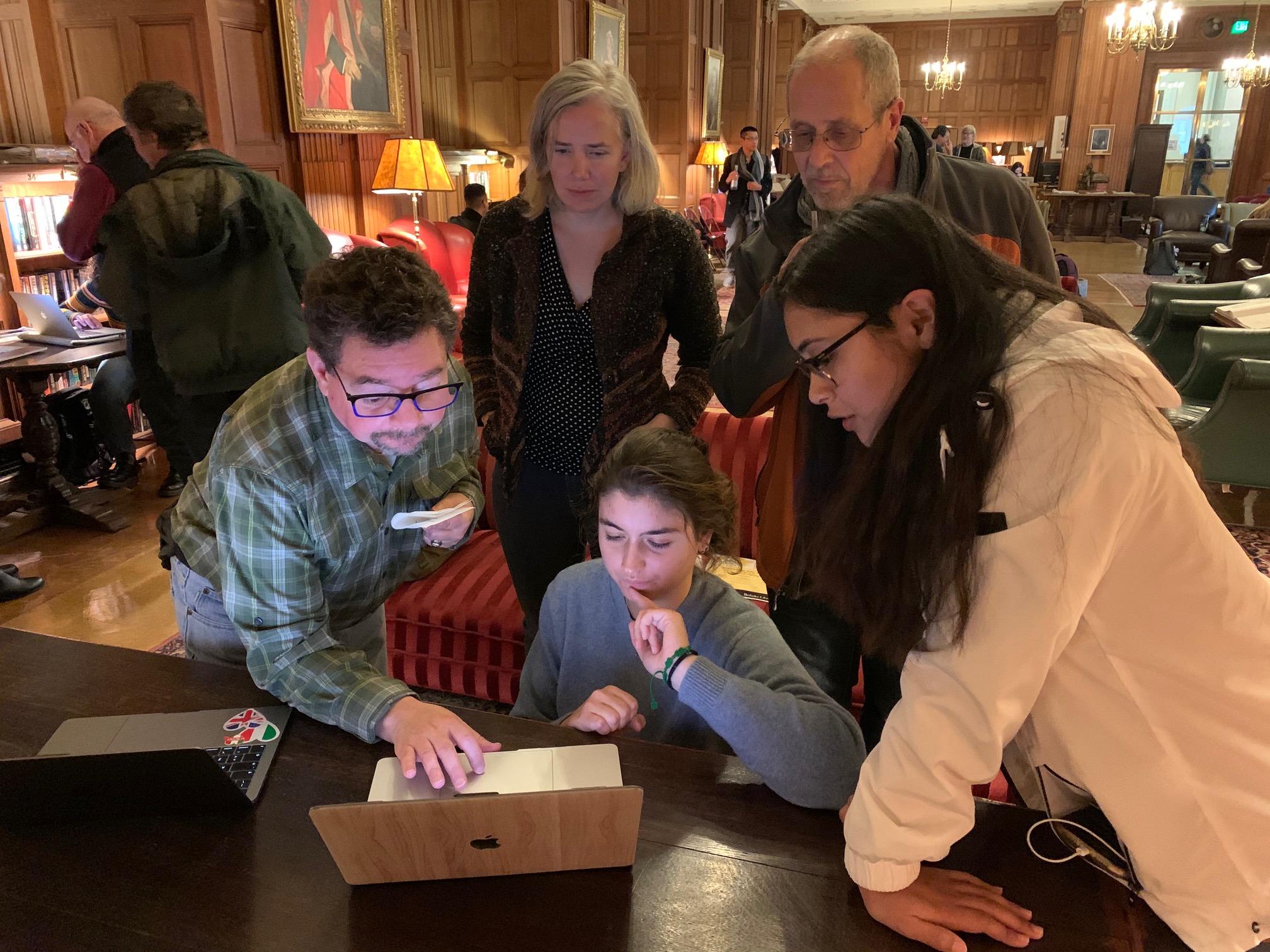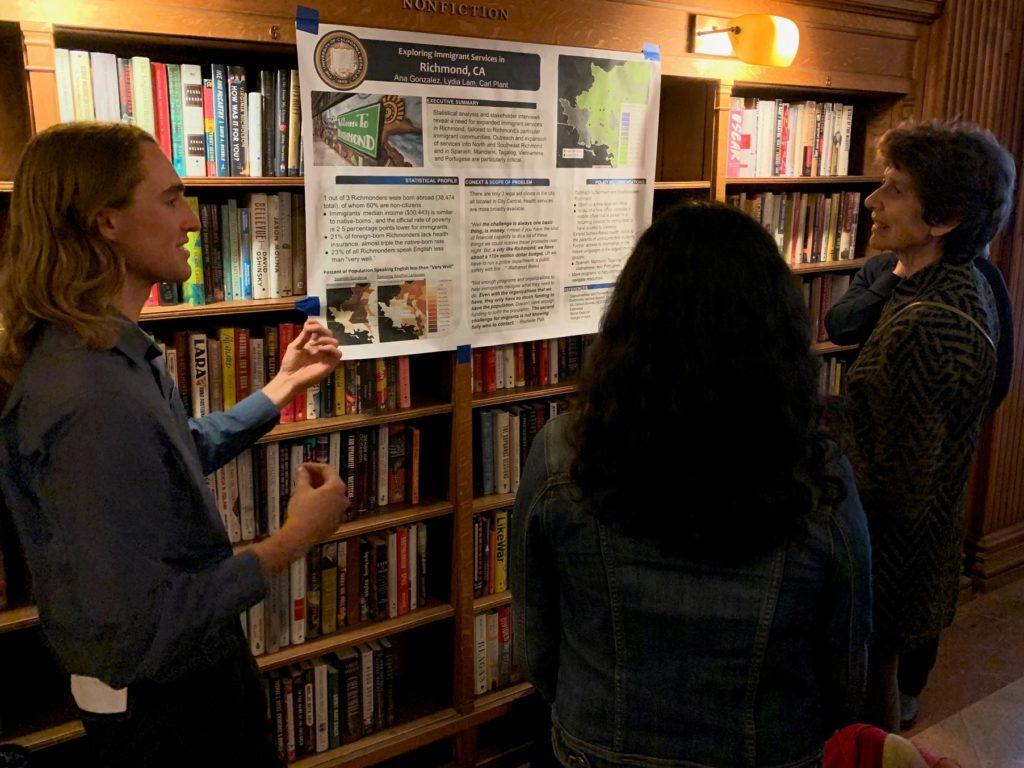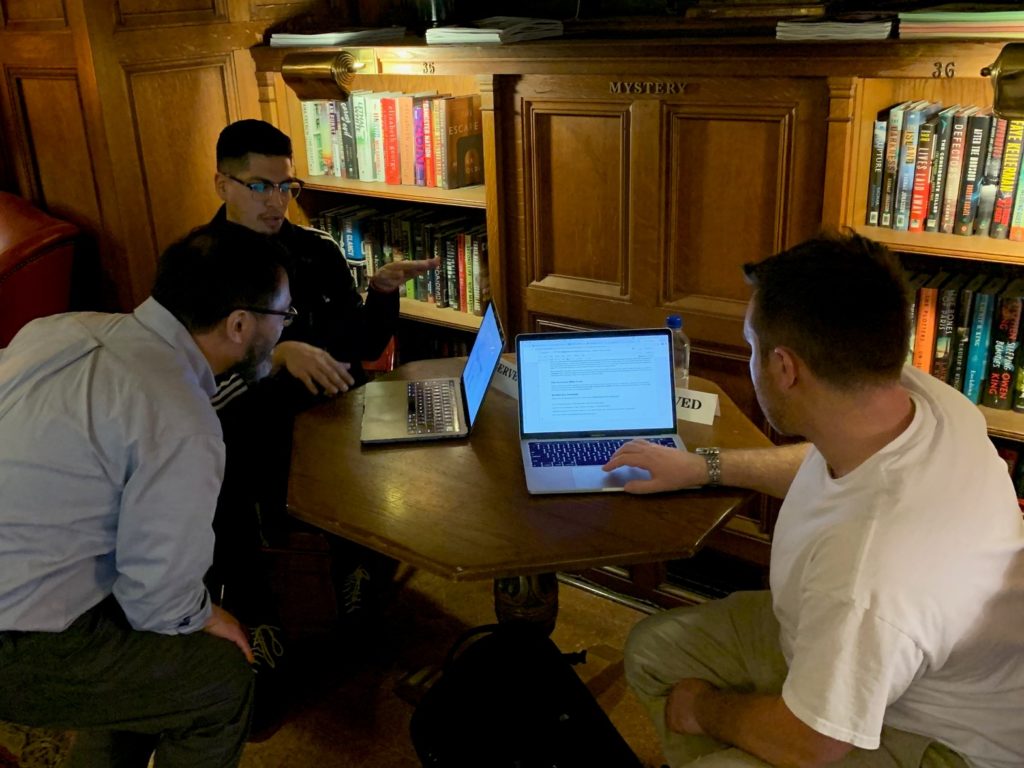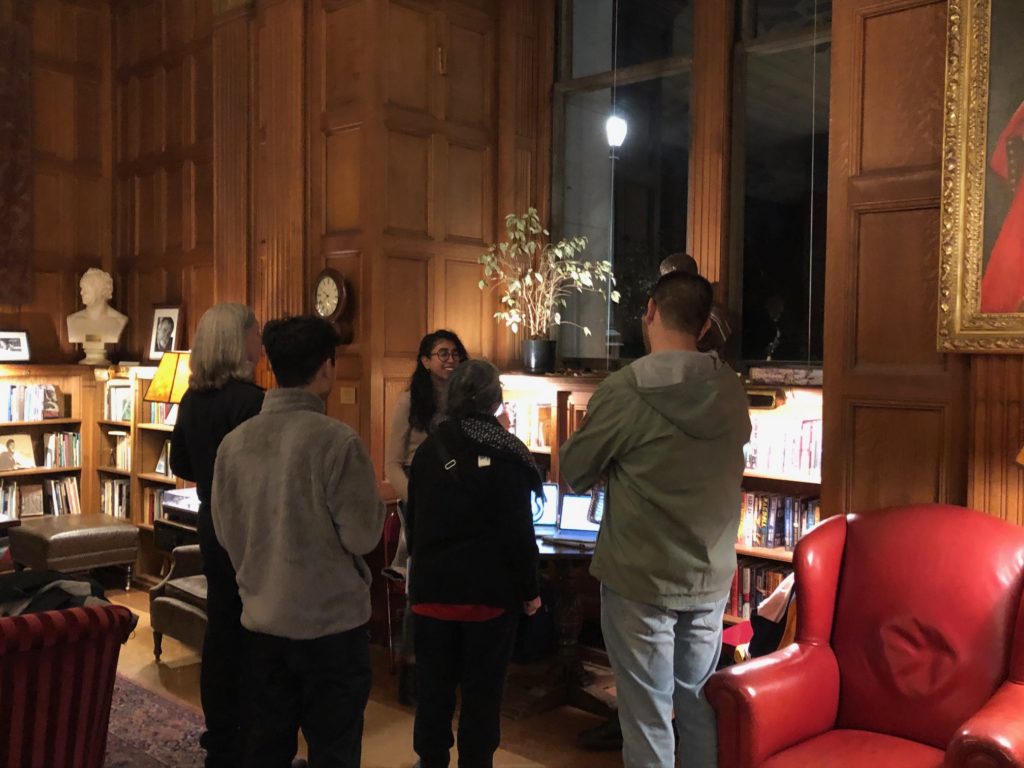Tag: library exhibit
Languages of Berkeley exhibition archived on Pressbooks and eScholarship
The Languages of Berkeley: An Online Exhibition

The Languages of Berkeley: An Online Exhibition has now been archived as a catalog in both the Pressbooks open publishing platform and eScholarship—the UC system’s open access repository. Because of the impermanence of the blog environment in which it was created as a sequential exhibit from September 2019 to August 2020, we wanted the content of the multi-dimensional project to live on and remain accessible.
This library exhibition comprises short essays of nearly all of the 59 modern and ancient languages that are currently taught across 14 departments on campus plus a dozen more languages that contributors wished to include. More than 45 faculty, lecturers, librarians, staff, and students contributed to this project which celebrates the magnificent diversity of languages that advance research, teaching, and learning at the University of California, Berkeley.
Since its founding in 1868, students and faculty at UC Berkeley have concerned themselves with a breathtaking range of languages. In support of teaching and research, the University Library, which collects and preserves materials in all languages, now boasts a collection of nearly thirteen million volumes. It is among the largest academic libraries in the U.S. with more than one third of its print resources in more than 500 non-English languages.
Claude Potts,
Librarian for Romance Language Collections
UC Berkeley
 Follow future activities on Instagram.
Follow future activities on Instagram.
The Languages of Berkeley is a dynamic online sequential exhibition celebrating the diversity of languages that have advanced research, teaching and learning at the University of California, Berkeley. It is made possible with support from the UC Berkeley Library and is co-sponsored by the Berkeley Language Center (BLC).
Follow The Languages of Berkeley!
Subscribe by email
Contact/Feedback
ucblib.link/languages
“Teaching, Learning and Creating Change with Data”–a Census-Focused Library and American Cultures Event

At Berkeley, every undergraduate student must satisfy an American Cultures (AC) requirement. From the American Cultures site: “American Cultures courses are uniquely designed to critically engage in important issues within the United States by helping students develop a deeper understanding of race, culture, and ethnicity in the context of American society.” This long-standing requirement has led to some amazing projects and also some really creative ways of engaging students. And, even if a class is sponsored by, say, the sociology department, the students may be from a wide range of disciplines.
Having just launched “Power and the People: The U.S. Census and Who Counts”, the library’s exhibit on the census (just in time for the 2020 count), its curators were looking for exciting ways to bring census data to life, as part of a kick-off event. We learned about how two American Cultures classes (Sociology 130AC, “Social Inequalities: American Cultures” and Sociology 146AC, “Contemporary Immigration in Global Perspective”) involve students with the census by incorporating census data into projects—and a program was born!
The program held earlier this week, called “Teaching, Learning and Creating Change with Data: The Census and American Cultures”, featured faculty and student presenters outlining and showing their work in the inviting space of the Morrison Library. After short talks by Victoria Robinson, American Cultures program director, Irene Bloemraad, Sociology department and director of the Berkeley Interdisciplinary Migration Initiative (BIMI), and Joanna Reed, Sociology department, students presented their work, the heart of the event. Six Sociology 130AC students showed, on laptops, how they used census data to complement their field work looking at neighborhood characteristics for assigned census tracts along the number 18 AC Transit bus route. Five Sociology 146AC students showed, on conference-type posters, how they used census data along with their investigations of immigrant services in two Bay Area cities (Richmond and Santa Rosa), to map availability of services in areas of greatest need and look for service gaps (in fact, some of this work contributed to a BIMI report). [post continues below photos]


The hallmark of the event was the completely engaged atmosphere of conversation and ideas that resulted from the connections between the students and attendees, and between the broader context of how census data shapes and helps us understand the country we live in. This post is full of photos, because they are what really convey how exciting it was to see what the census can offer to our research and our lives, and to make the case of how important it is for each of us to be counted.
P.S. Don’t miss our second event, a panel featuring renowned experts on race/ethnicity and the census, Cristina Mora, Michael Omi, Taeku Lee, and Tina Sacks, on March 19, 2020, same time (5 pm), same place (the Morrison Library)


![The Languages of Berkeley [fan]](https://update.lib.berkeley.edu/wp-content/uploads/2019/02/fan_languages-450px.jpg)